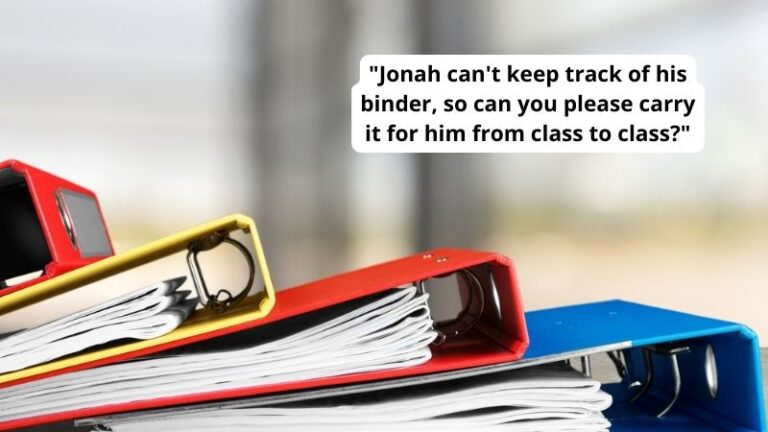“This is the worst group of students ever.” “She struggles because she is right-brained.” “He is not a math person.”
We all say things that we shouldn’t sometimes, and I am guilty of saying many of these myself. But words matter. They often convey unconscious meaning and suggest we hold hidden bias that can be harmful for teachers and students. Frustration is okay, but how we express it has consequences. So consider this a checklist of things educators shouldn’t say because of the unintended impact these phrases can have.
“This is the worst group of students ever”

I get it, sometimes we are overwhelmed and just need to vent. Especially when a particular set of students seems more challenging than others. But when we internalize and assign negative labels to individuals or groups of students, we are stuck in a fixed and judgmental mindset. The stress you feel is validated, but it’s important to try to relieve that stress so you can reflect and investigate the causes of the student behavior that is challenging you. Consider that your own actions may be contributing to the negative behaviors that you see. Students will see through you and feel your judgement of them, and when they do this, behavior rarely improves.
“Ava is so smart”

This one is deceptive because it sounds like a compliment. But it is really the same fixed mindset as the negative judgment above. This statement implies that Ava has some innate abilities that other students do not. It also implies that there is a group of “dumb” students in the class. Avoid labeling students on talents and abilities. Instead focus on their efforts and successful strategies that they employ. This will encourage other students to work hard and attempt new strategies, rather than feel trapped as being “less than” other students.
“I don’t do math / I’m not a math person”

You will rarely hear educators bash reading or other subjects like they do math. For some reason it has become acceptable in our society to “brag” about how terrible we are at math. However, difficulties with math is rarely innate. So often, the struggle students have with math is tied to a lack of confidence in the subject. Using language that implies that struggling with math is something one is born with is not only harmful, but it’s untrue. We need to change our students’ math perception with the growth mindset mentioned previously. Math teaches problem-solving skills vital for their future, and all are capable of learning it.
“Max is a kinesthetic learner”

Many schools start off the year by testing their students to identify their learning styles so that they can tailor their instruction accordingly. However, research has shown over and over again that learning styles do not exist and are not worthy of an educator’s time. But for some reason, schools often love and espouse this theory as the secret to making sure that we are meeting every child’s needs. Saying one student is more adept at hands-on work and another is better at listening activities deprives each of different learning experiences. Max may very well love kinesthetic activities, but so does every other student. We should design lessons accordingly.
“School-to-prison pipeline”

Are schools really sending kids to prison? I hate this phrase because it blames schools for large, societal problems. Our country has a clear history of institutional racism in slavery, segregation, and policies such as redlining and racial profiling (and the public school system has been part of this problem). But the source of these problems is not schools, but rather society. Schools can help children in poor communities and often provide food, clothing, and mental health care on top of the traditional education. But to solve the complex issues of poverty, it will take the government offering many more services, training, and support to help deal with the societal causes of crime. I am tired of schools being bashed for political and societal decisions beyond their control and resources to help.
Jargon words like “rigor”

It should not be easy for your staff to play buzzword bingo every time that you address them. Yes, our profession has some specialized vocabulary, but we don’t impress teachers by using it in every interaction with them. A pet peeve of mine is ‘rigor’, which always reminds me of rigor mortis. It sounds like we are trying to kill students by making sure our classes are strenuous. Try using ‘vigor’ instead. It implies the effort that we want students to make in a much more positive light.
So consider your words wisely and maybe ask a trusted colleague for feedback on whether or not you say any of these or other things that might be better left unsaid. What else would you add that educators should stop saying? Comment below!
Join the great conversations going on about school leadership in our Facebook groups at Principal Life and High School Principal Life.
Plus, check out Preventing Teacher Burnout.

